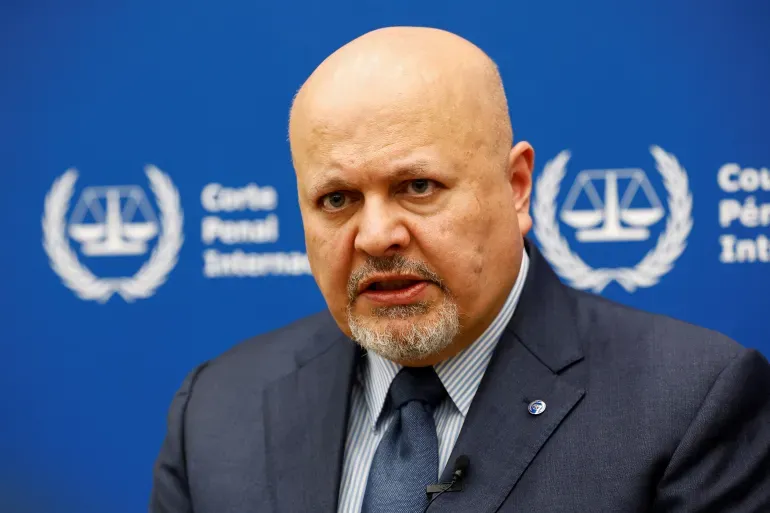ICC Prosecutor Steps Down Amid Sexual Misconduct Investigation Over Netanyahu Arrest Warrants
Sexual misconduct allegations against ICC prosecutor Karim Khan spark calls to rescind arrest warrants against Israeli leaders.

The International Criminal Court (ICC) has announced that its chief prosecutor, Karim Khan, will step aside amid an investigation into allegations of sexual misconduct. The decision comes after mounting pressure from women's rights groups and international observers calling for accountability within the world's highest court dedicated to prosecuting cases of genocide, war crimes, and crimes against humanity.
Khan, who has firmly denied all allegations against him, has taken a leave of absence pending the completion of an external investigation by the United Nations Office of Internal Oversight Services (OIOS). According to an ICC statement released Friday, Khan communicated his decision to take leave "until the end" of the inquiry. The OIOS was brought in after initial concerns were raised by two court employees in whom the alleged victim had confided. Despite interviewing the woman, the court's internal watchdog concluded its own inquiry after just five days when the alleged victim chose not to file a formal complaint, and Khan was reportedly never questioned at that stage.
Pressure Mounts on ICC Integrity
- Women's advocacy organizations welcomed Khan’s departure as overdue, having demanded his resignation since the allegations emerged in 2023.
- Legal experts and critics argue that the issue extends beyond the individual, citing systemic problems within the ICC.
Eugene Kontorovich, a senior fellow at the Heritage Foundation, stated, "Removing Khan is not enough. The entire tribunal...enabled his blood libel. The scandal points to the inherent defects of the institution—a total lack of accountability."
The timing of the allegations is notable: They surfaced weeks before Khan sought arrest warrants for Israeli Prime Minister Benjamin Netanyahu, former Defense Minister Yoav Gallant, and three Hamas leaders, all accused of war crimes connected to the ongoing Israel-Hamas conflict. Some observers have questioned whether the high-profile charges against Israeli officials might have been used as a distraction from the internal scandal. The Wall Street Journal reported that Khan abruptly canceled a planned trip to Israel and Gaza just prior to seeking the warrants, raising speculation about motives.
Khan’s defense team, Carter-Ruck Solicitors, maintains their client's innocence, asserting, "Our client does wish to make clear, however, that it is categorically untrue that he has engaged in sexual misconduct of any kind." They add that Khan is cooperating fully with the investigation and reject any suggestion that the arrest warrants for Israeli or Hamas leaders were linked to the sexual misconduct allegations. "Suggestions that the Prosecutor’s applications were linked to, or precipitated by, unrelated allegations of misconduct are totally false," they stated.
On the political front, the U.S. government has acted against Khan: Former President Donald Trump imposed sanctions on him in February over the ICC’s actions related to Israel. These measures have reportedly hindered a range of ongoing investigations at the court.
Further complicating the ICC's position, Hillel Neuer, UN Watch Executive Director, commented, "Make no mistake: the problem is bigger than Khan. They’re throwing him under the bus to protect the institution and salvage their campaign against Israel. But the rot runs deep. This was never about justice; it was always about a political agenda."
A spokesperson for the United Nations emphasized the independence of the ICC, declining to comment on the unfolding scandal. Meanwhile, Israel has formally requested the ICC withdraw the arrest warrants against its leaders, but court spokesperson Fadi El-Abdallah stated that, with a pending request, no comment or speculation can be offered at this time.
With Khan’s future uncertain and renewed scrutiny on the ICC’s processes, the court faces a critical juncture. Critics warn that unless there is substantive reform, public trust in the body’s mission to deliver impartial global justice may further erode.
